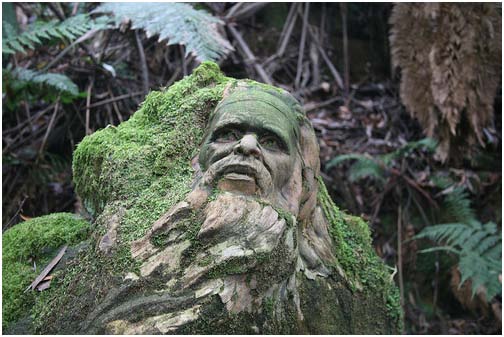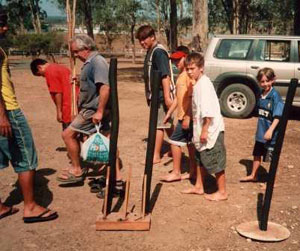Human Research Ethics Online Training
V. Research with Aboriginal and Torres Strait Islander Peoples
Summary of the Principles of Ethical Research Developed by the Australian Institute of Aboriginal and Torres Strait Islander Studies
Aboriginal and Torres Strait Islander communities are diverse and unique. They have different languages, cultures, histories, and perspectives. These differences must be recognised, acknowledged and respected. It is also important to understand value and respect the diversity of individuals and groups within these communities. Research projects with or about Aboriginal and/or Torres Strait Islander peoples should incorporate their perspectives and be planned with continuing opportunities for consideration by the community. Aboriginal and/or Torres Strait Islander researchers, individuals and/or communities should be involved and considered as research collaborators. The researchers must accept a degree of community input into and control of the research process.
Research should not be researcher biased. The act of consultation and negotiation is not simply a matter of courtesy but an opportunity for groups to be properly, freely and fully informed. It must acknowledge and respect Aboriginal and Torres Strait Islander knowledge systems and processes, ideas, cultural expressions and cultural materials. The researched community should not be disadvantaged by the research project. There must be mutual understanding that participants have the right to withdraw from the project at any time.
Researchers have an obligation to provide free and informed consent as well as an obligation to give something back to the community. Research results should be shared in a form that is useful and accessible. Recognition for the contribution of communities and individuals should be acknowledged appropriately. This recognition should also be discussed with potential contributors prior to the commencement of the project.
The six values that lie at the heart of the "Values and Ethics: Guidelines for Ethical Conduct in Aboriginal and Torres Strait Islander Health Research" endorsed by Council on 5 June 2003 are:
Reciprocity, Respect, Equality, Survival and Protection, Responsibility, and Spirit and Integrity
Reciprocity
Principles of research conduct should always be founded on respect for peoples' inherent right to self-determination, and to control and maintain their culture and heritage. Research with and about Aboriginal and Torres Strait Islander peoples must essentially be found on a process of meaningful engagement and reciprocity.[1]
Researchers demonstrate reciprocity through the sincere intention to contribute to the advancement of the health and wellbeing of participants and communities participating in the research. Research should respond to existing or emerging needs articulated by Aboriginal and Torres Strait Islander peoples. There should be clear links between the research proposals and the priorities of community, regional, jurisdictional and /or international indigenous health. Prior to the consensual approval and commencement of a research project, there should be a clear and truthful discussion of the nature of the research proposal and potential benefits for the participants. The researchers must be willing to modify research in accordance with participating community values and aspirations. Wherever possible, collaborative partners in a research project should seek to enhance the capacity of communities to draw benefit beyond the project.
Respect
A functioning and moral society depends upon the respect of human dignity and individual worth. Respect is at the core of all aspects of any research process. People have the right to different values, norms and aspirations. Respectful research relationships acknowledge and affirm these rights.
Every effort should be made to minimise the possibility of overlooking differences. Ethical researchers consider and recognise the right to difference, the contributions of participating groups and individuals and the consequences of research at all stages of the process.
There is no greater priority of a researcher than the feedback of findings to a community in an appropriate and understandable way. Researchers need to develop sensitivity to social and cultural processes and understand how their research engages with Aboriginal and Torres Strait Islander peoples' values, knowledge and experience.
 William Ricketts Sanctuary, Mt Dandenong. Photo: Julie Strahan/jsarcadia photography. Copyright Creative Commons, some rights reserved.
William Ricketts Sanctuary, Mt Dandenong. Photo: Julie Strahan/jsarcadia photography. Copyright Creative Commons, some rights reserved.
Equality
Equality is embodied by a commitment to distributive fairness and justice. It is a feature of the fundamental dignity of humanity.
All researchers must recognise and acknowledge the equal value of people and the right to be different. The history of marginalisation of Aboriginals and Torres Strait Islander cultures has created inequalities and led to discrimination, stereotyping and disregard. Researchers should seek to advance the elimination of such inequalities. They must value the systems of knowledge and wisdom as well as how this knowledge and wisdom is imbricate in the collective memory and shared experiences of Aboriginal and Torres Strait Islander communities.
Research agreements must have the strength necessary to sustain equality. Researchers can then demonstrate equality by helping the participating communities understand the proposed research and gain satisfaction from the equal distribution of any benefits.
Survival and Protection
Aboriginal and Torres Strait Islander peoples place particular importance on collective identity. They act to protect the distinctiveness of their cultures and identity from erosion by colonisation and marginalisation. Past research has given the perception of research as an exploitative exercise. Current researchers have to make efforts to demonstrate - through ethical negotiation, conduct and dissemination of research - that they are trustworthy.
Researchers should have respect for social cohesion, a commitment to cultural distinctiveness, and understand the importance of solidarity to Aboriginal and Torres Strait Islander peoples.
Research partners need to assess if the research project contributes to or erodes the social and cultural bonds among and between the participating communities. Measures to safeguard against the contribution to discrimination or derision should be set in place.
 Urban Aboriginal boys attending a culture day in Penrith. Copyright 2003 Kristina Everett, all rights reserved.
Urban Aboriginal boys attending a culture day in Penrith. Copyright 2003 Kristina Everett, all rights reserved.
Responsibility
"Ethical research occurs when harmony between the sets of responsibilities is established, participants are protected, trust is maintained and accountability is clear." [1]
Core responsibilities recognised by Aboriginal and Torres Strait Islander peoples:
- responsibilities to country,
- to kinship bonds,
- caring for others and
- the maintenance of harmony and balance within and between the physical and spiritual realms
Research partners have a responsibility to do no harm. Researchers have an accountability to individuals, families and communities. They demonstrate responsibility through the transparent exchange of ideas and the open negotiation of purpose, methodology and conduct, dissemination of results and potential outcomes/benefits of research.
Researchers have an obligation to provide timely and relevant feedback to communities. This feedback should address the concerns, values and expectations expressed by the research participants and communities.
Publication arrangements of the research results should be mutually agreed upon. The demand on partners and the potential implications arising from the research and subsequent publication should be made clear.
 Photo by Benjamin Whitehouse. Creative Commons
Photo by Benjamin Whitehouse. Creative Commons

